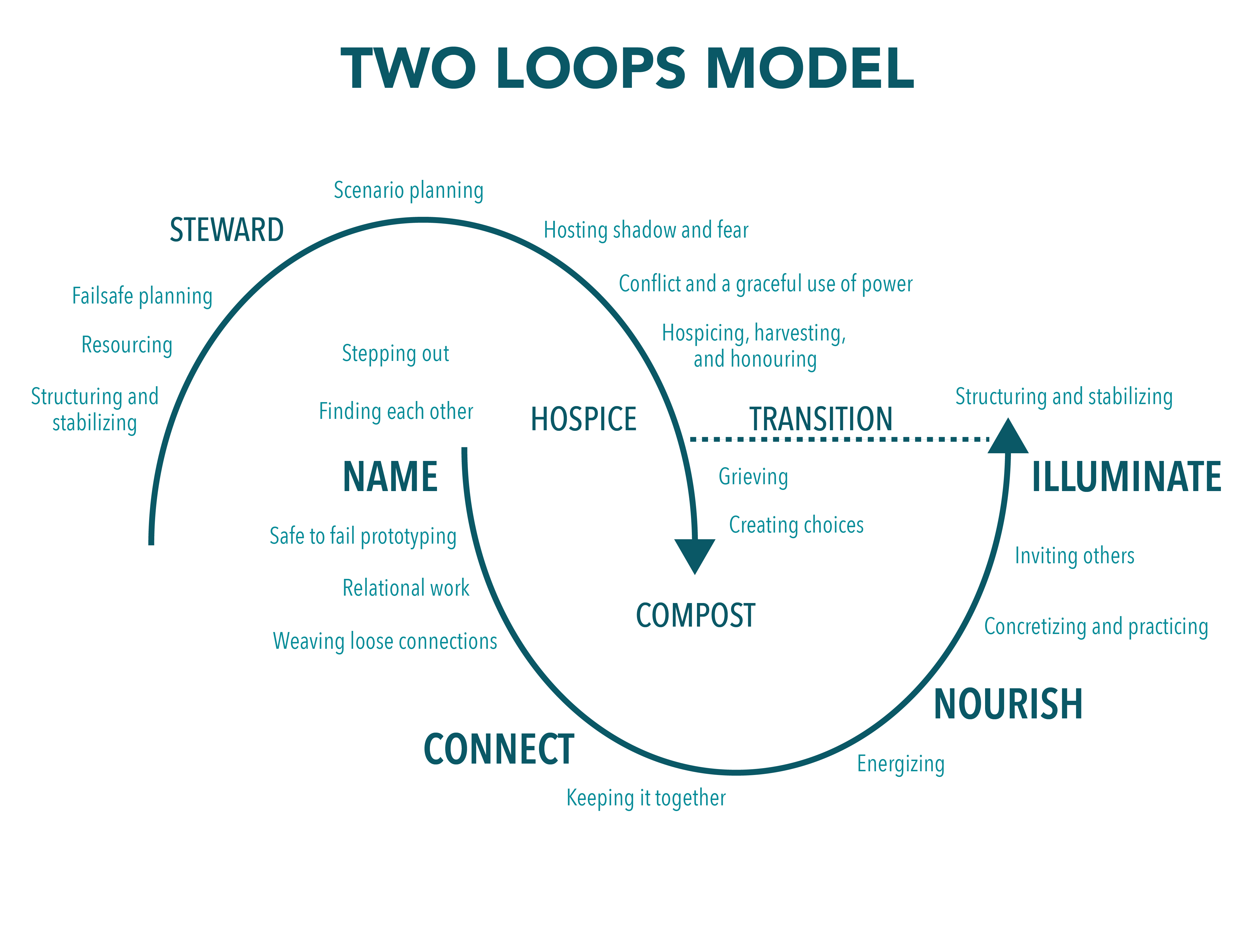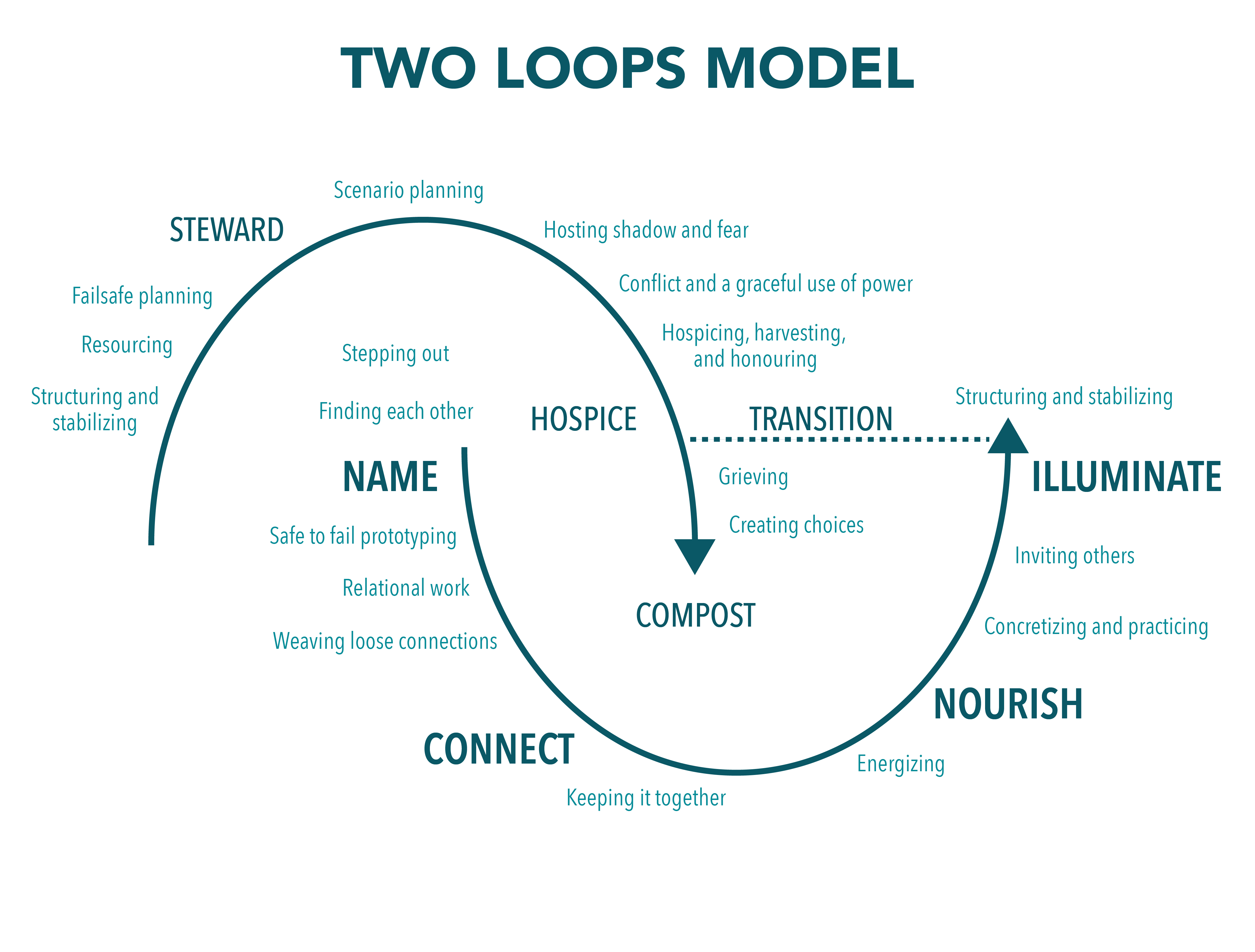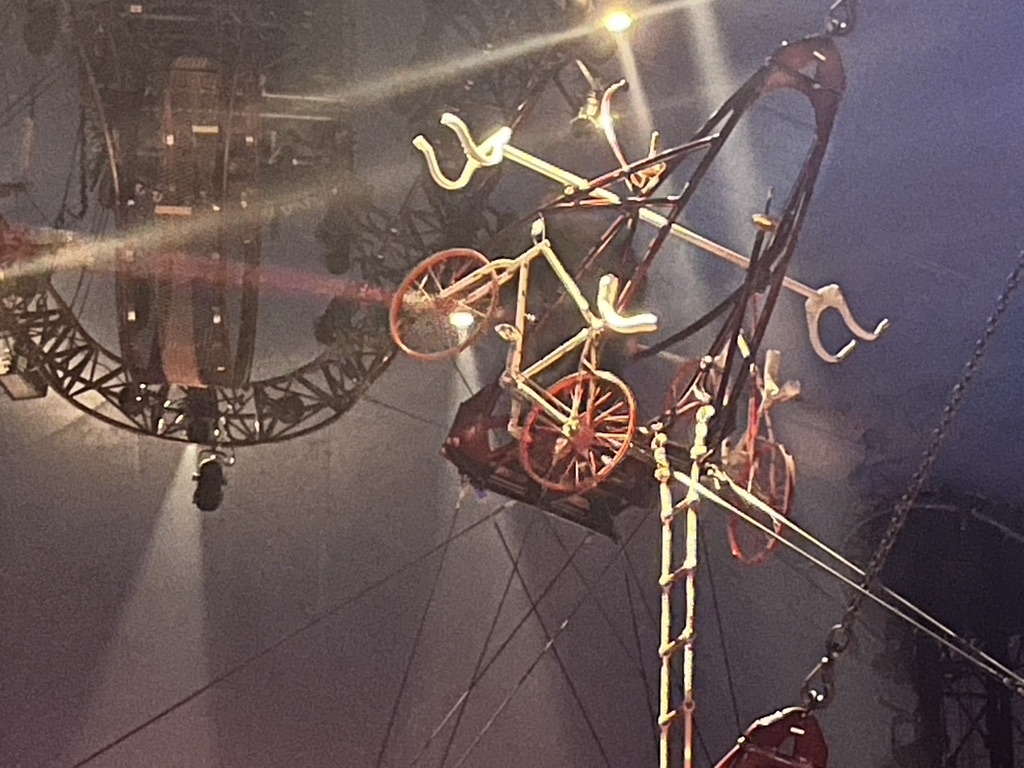
It occured to me this morning after I posted that piece on affordances last night, I haven’t really blogged about the two loops model of change in living systems. That’s kind of a surprise to me because for the past 15 years or so this is one of the models that has formed a deep part of my practice in working with organizations. Like the Chaordic Path, it is a simple way to grasp deep and complex topics and a good way to introduce groups to concepts that explain more deeply how complex systems work. (You’ll see me refer to …

A quick note here to connect a key idea from complexity work with the two loops model of change that I’ve used essentially as a theory of change in living systems ever since I started working with it back in the Berkana Institute days when we were looking for ways to explain why networks alone weren’t the answer to change work. Just a warning. This is a theory-heavy post, and I recommend you read the linked papers and blogs to dove deeper. What is unique about the model pictured above (and click through if you’re reading this on email, as …

I was struck by Daniel Miller’s research on Skerries, a small seaside town in Ireland which he discussed on the BBC’s Thinking Allowed podcast this week. The town he is describing is almost EXACTLY a match for Bowen Island, where I live right down to the demographics, the community dynamics and the fact that we don;t have a swimming pool, a theatre or a hotel and we do drink A LOT and have a cocaine problem. He wrote a book about his research but I was struck by the deep parallels between our two villages. In thinking about the commonalities …
Me and some friends “villaging” back in 1996 or so at a session at The Irish Heather in Vancouver. That’s me blissed out on the bottom right of this photo. We are playing traditional Irish tunes together. Barbara Holmes today in a post at the Centre for Action and Contemplation: It takes a village to raise a child. It takes a village to survive. For many of us, villages are a thing of the past. We no longer draw our water from the village well or share the chores of barn raising, sowing, and harvesting. We can get … almost …

A systems change initiative I witnessed on the weekend. I think my nomination for LinkedIn post of the year goes to Cameron Tokinwise for this one: Good reminder for those extolling Systems Thinking from Pelle Ehn at the beginning of his still remarkable 1988 book, _Work-Oriented Design of Computer Artifacts_ – that systems are only ever ensembles considered as systems. Systems are not things in the world, but ways of understanding how things in the world relate to each other. Systems Thinking is a choice to interpret the world as sets of systems. To be concerned about trying to effect …

